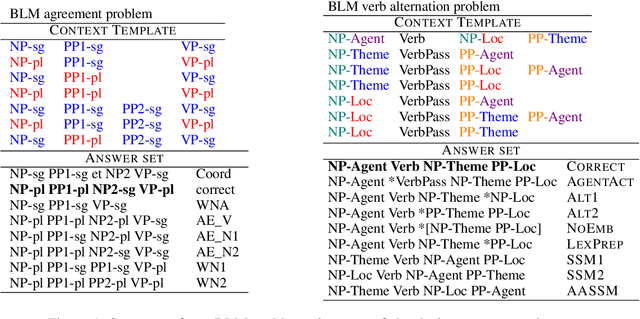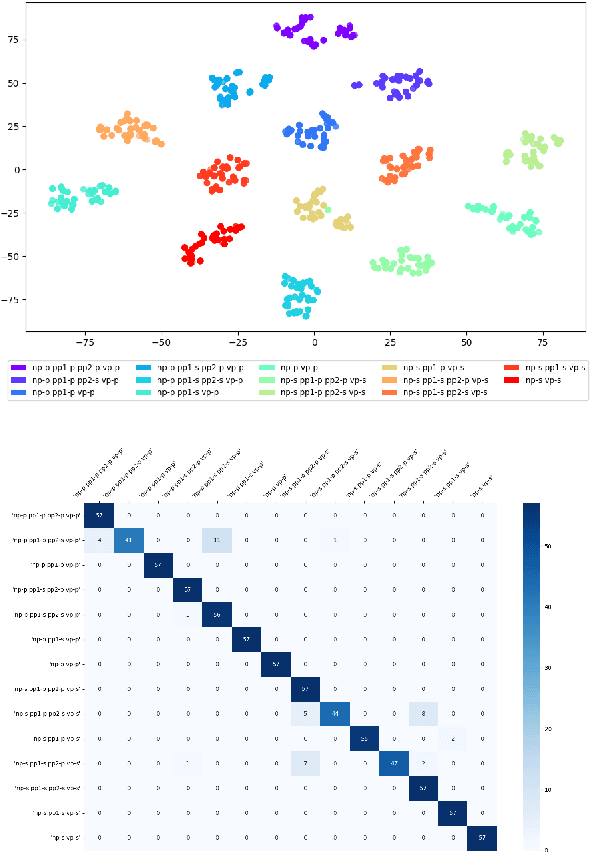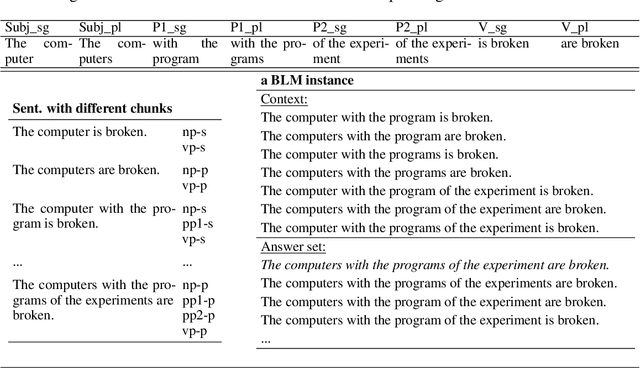Are there identifiable structural parts in the sentence embedding whole?
Paper and Code
Jun 24, 2024



Sentence embeddings from transformer models encode in a fixed length vector much linguistic information. We explore the hypothesis that these embeddings consist of overlapping layers of information that can be separated, and on which specific types of information -- such as information about chunks and their structural and semantic properties -- can be detected. We show that this is the case using a dataset consisting of sentences with known chunk structure, and two linguistic intelligence datasets, solving which relies on detecting chunks and their grammatical number, and respectively, their semantic roles, and through analyses of the performance on the tasks and of the internal representations built during learning.
* 17 pages, 14 figures, 5 tables
 Add to Chrome
Add to Chrome Add to Firefox
Add to Firefox Add to Edge
Add to Edge